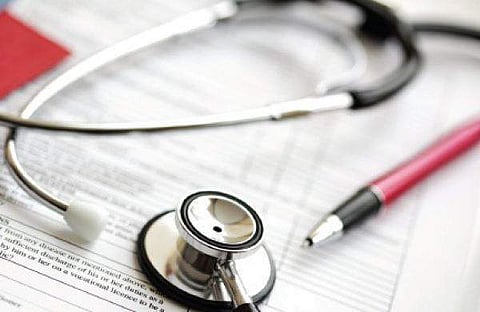

NEW DELHI: To boost India’s medical device industry, the government on Friday launched a Rs 500 crore scheme aimed at strengthening key areas such as manufacturing, skill development, clinical studies, infrastructure, and industry promotion.
Union Health and Family Welfare Minister J P Nadda, while launching the scheme, described it as a potential “game-changer” for the industry.
Nadda, who also holds the portfolio of Union Chemicals and Fertilisers Minister, stated, “The comprehensive scheme, with an outlay of Rs 500 crore, aims to address critical areas of the sector, including manufacturing, skill development, clinical studies, infrastructure, and industry promotion.”
He added that the scheme would significantly benefit the medical device industry and contribute to India’s self-reliance. “The scheme is going to be a game-changer and it will not only help the industry but will also be a long leap in making India self-reliant,” he said.
Emphasising the government’s commitment, Nadda urged industry stakeholders to effectively utilise the scheme. "These interventions may look small, but the outcomes are big," he remarked.
Medical devices play a critical role in the prevention, diagnosis, and treatment of diseases, ranging from diagnostic machines and surgical instruments to stents and prosthetics.
Officials noted that India has started exporting a wide array of medical devices, including ventilators, PPEs, diagnostic kits, surgical gloves, coronary stents, radio-imaging equipment, and body implants.
The medical device market in India is valued at approximately 14 billion dollars and is projected to grow to 30 billion dollars by 2030. India is the fourth-largest medical devices market in Asia and ranks among the world’s top 20 medical devices markets.
The compound annual growth rate (CAGR) of exports over the past three years stands at 13.8 per cent, while imports have decreased at a rate of -2.08 per cent, according to the Chemicals and Fertilisers Ministry.
The Rs 500 crore scheme will be implemented over three years, until the financial year 2026-27. The overall scheme consists of five components: common facilities for medical device clusters, capacity building and skill development, a marginal investment scheme to reduce import dependence, clinical studies support, and a medical device promotion scheme.
As part of the scheme, Rs 110 crore has been allocated to strengthen infrastructure by creating common facilities such as research and development (R&D) labs, design and testing centres, and animal labs for around 20 medical device clusters in India. The funds will also enhance testing facilities. “Grants of up to Rs 20 crore for common facilities and Rs 5 crore for testing facilities will be provided,” the ministry said.
Additionally, Rs 180 crore has been earmarked for a marginal investment scheme aimed at deepening the value chain by incentivising the production of key components and raw materials for medical devices, thereby reducing import dependence. This sub-scheme will offer a one-time capital subsidy of 10-20 per cent of the project cost, with a maximum cap of Rs 10 crore per project.
At the event, Minister of State for Chemicals and Fertilisers, Anupriya Patel, highlighted the growing significance of medical devices in the healthcare industry, stating, "Medical devices have become an important pillar of the healthcare industry, and we find them in everyday life. Everybody is aware of their significance as their demand is continuously rising." She added that the government is designing policies and providing schematic support to promote the industry.